Below you will find pages that utilize the taxonomy term “Education”
Zenzeleni mesh networking in the Transkei
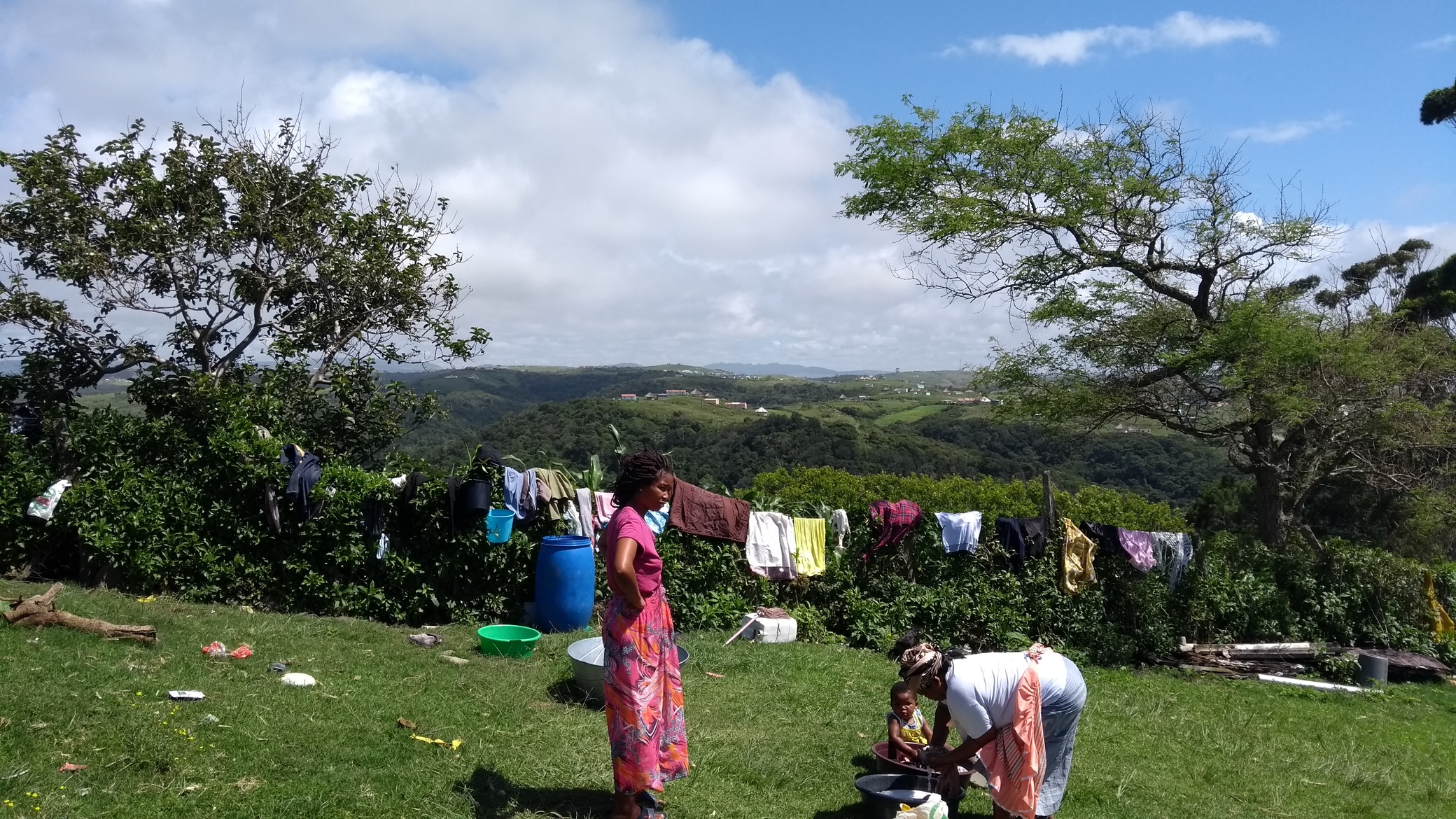
Countryside around Mankosi
While backpacking across the Transkei in South Africa, I stayed at Mdumbi Backpackers close to Coffee Bay, in the Mankosi Administrative Area, a rural traditional community within the Nyandeni Local Municipality in the Province of the Eastern Cape.
I had been made aware of an innovative wireless mesh network called Zenzeleni Community Telecoms by a friend in Cape Town, Michael Graaf, and took a look around. Zenzeleni translates to “Do it yourself” in isiXhosa.
Kiwix - enabling offline copies of wikimedia projects
Wikimedia projects, including the flagship English Wikipedia, have been restricted in access to people with internet access. kiwix is opening that up, via its offline reader.
I have blogged before about kiwix - this article is an effort to tell other people how to do the same.
Kiwix is a cross-platform reader of zim files. Zim is an open, standardised file format to store Wiki content efficiently for offline usage. It is compressed (LZMA), with fast resolution of inter-article links. It is simple (one file), and optimised to run on really small devices like phones.
Kiwix install at Kwena Malapo school Johannesberg
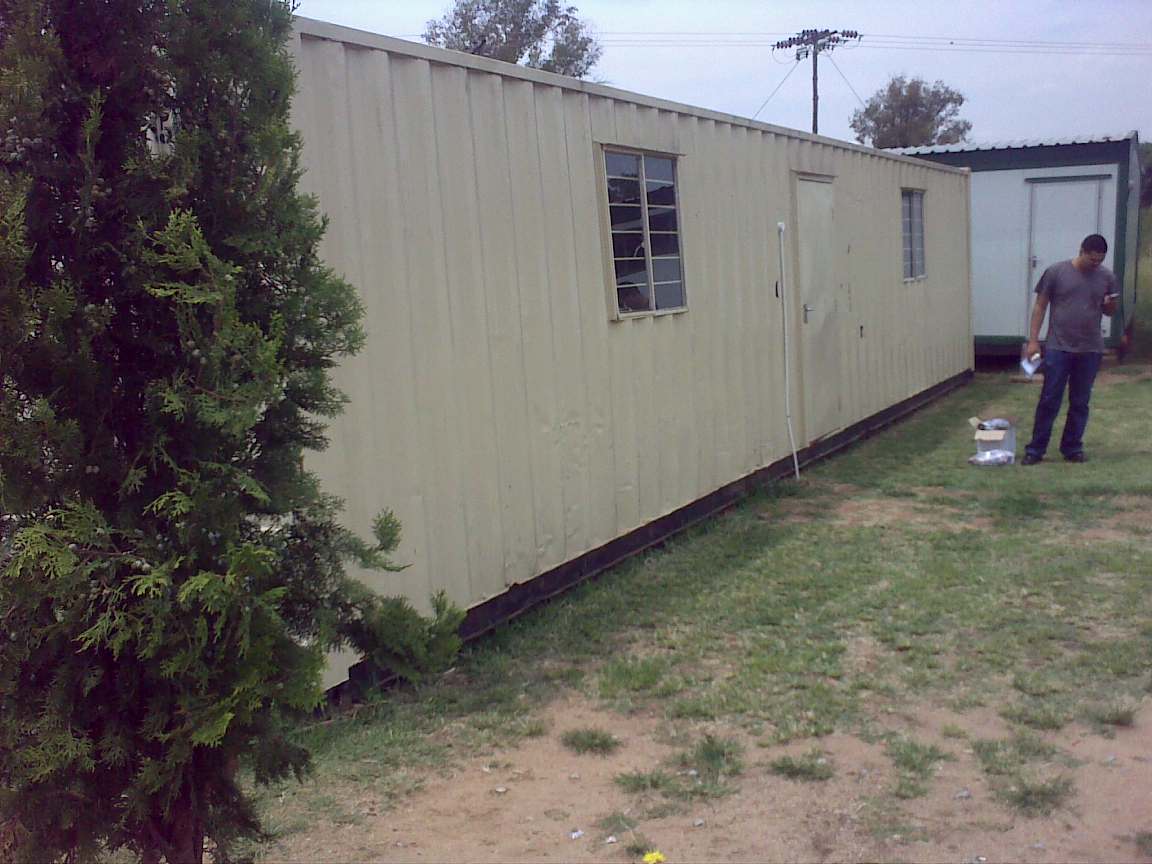
Kwena Malapo school
Kiwix, an offline wikipedia selection, is installed at Kwena Malapo school.
I have blogged before about creating offline copies of wikipedia for use in school computer labs that do not have internet access.
Wikimedia, the umbrella organisation behind wikipedia and other related projects, is also keenly interested in offline uses of wikipedia. From November through January, the offline taskforce had a series of IRC meetings where we attempted to answer questions relating to the use of these offline copies. We came up with four recommendations, one of which addressed schools, and another cellphones.
Computers in schools in Gabon
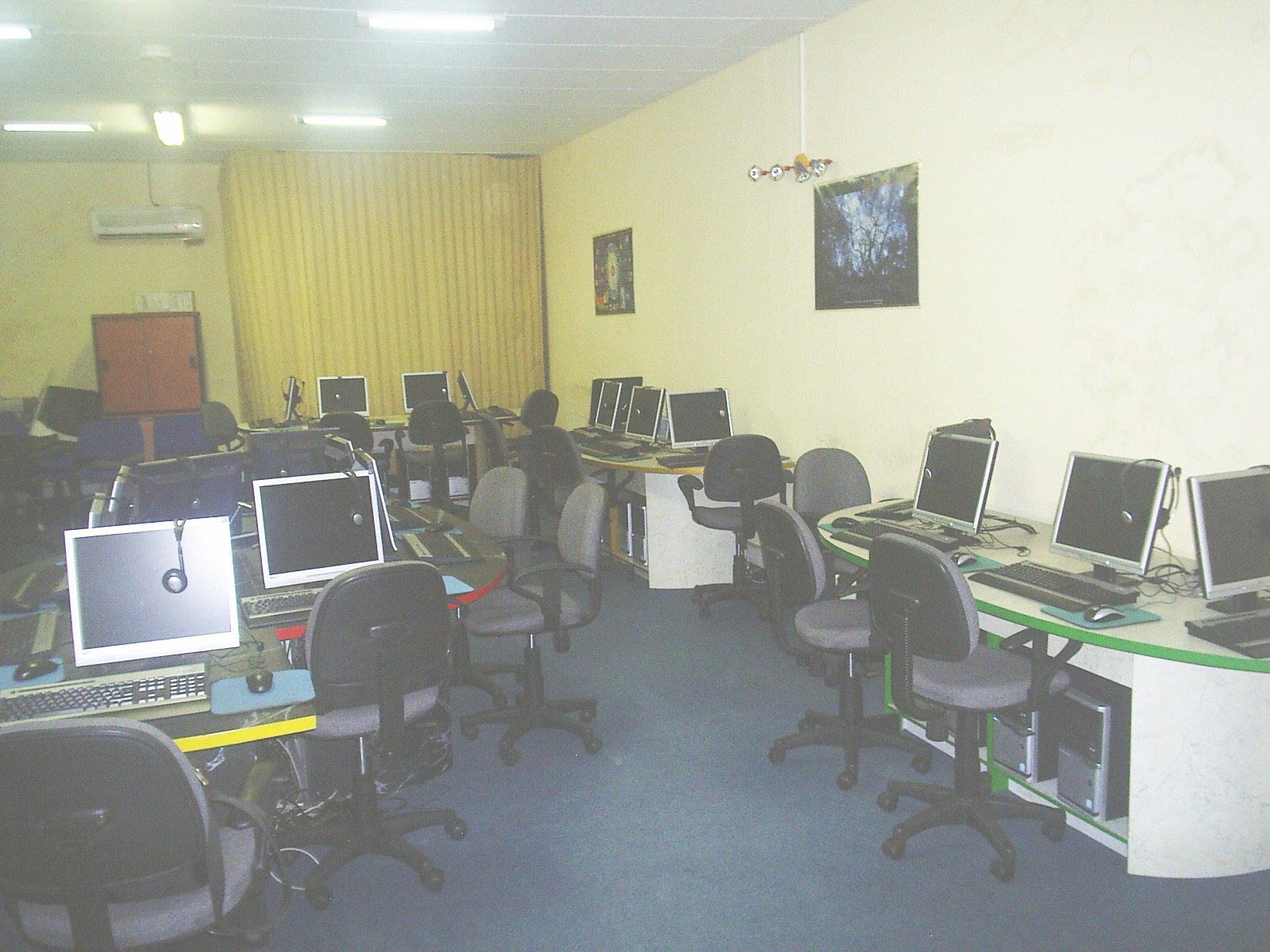
I visited Gabon for the last two weeks of May 2009 by invitation of Yoan Anguilet, who has a business and NGO there promoting ICT and Science literacy in schools. We had met previously when setting up AUST, a new university in Nigeria. Yoan had invited me to set up a similar system at two schools in Gabon, as a precursor to a larger effort later in the year.
Flight
Our flight was delayed for 2 hours, circling over Libreville, as we had the misfortune of arriving at the same time as the body of the recently-deceased First Lady, Edith Lucie Bongo. Edith featured prominently in the next few days, as most of Libreville was closed and there was blanket TV coverage of the state funeral. In fact, we were asked to come to pay respects to the First Lady on the first evening at the presidential palace - my luggage had not arrived, so I was in my travelling clothes..
Nigerian infrastructure
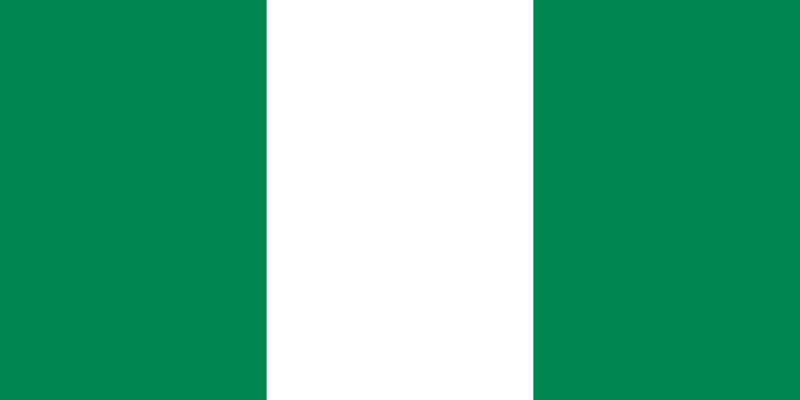
Abuja, Nigeria, the capital city, suffers from lack of infrastructure. Potholes, no landlines, power cuts every day.
Nigeria as a tourist
In 1992 as a tourist on an overland truck, I travelled through Nigeria from the Cameroon border in the north, down through the city of Kano and its magnificent central market, to the bustling and wild city of Lagos. In Nigeria “Benin” is a western province - the sleepy francophone country to the west is pronounced differently and must be identified as the republic of benin.
Launch of AIMS Research Centre, Muizenberg

Stephen Hawking
On May 11, the African Institute for Mathematical Sciences opened its Research Centre. Present were a host of dignitaries, led by Stephen Hawking, Michael Griffin, the current administrator of NASA, and Nobel prize-winners David Gross and George Smoot. A lineup indeed.
I have posted about AIMS before. The bread-and-butter of AIMS is a post-graduate diploma course for African Mathematicians. This broadens the role of the institute to include research. AIMS is set by the sea in a lovely location in Muizenberg, and is the brainchild of Neil Turok, who last year won a TED prize for this and his work on cosmology. TED listens to wishes from its winners - Neil’s declared wish is that the next Einstein come from Africa.
Habeni Primary
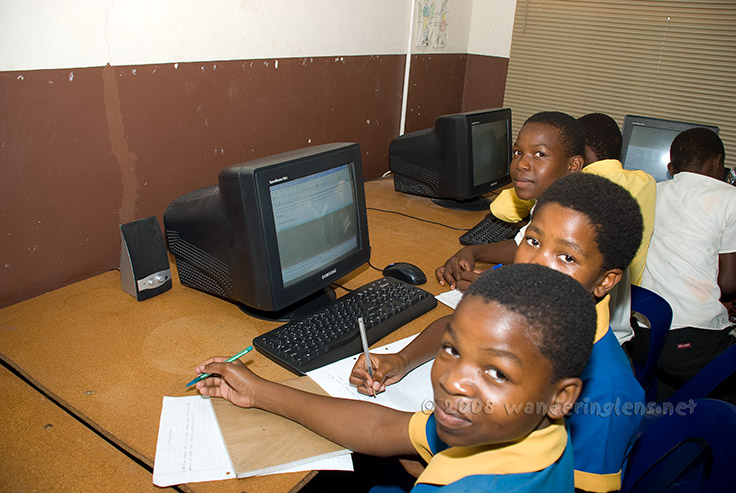
Classroom scene
Habeni Primary school is in Zululand, and has recently acquired a computer lab. Courtesy of Kelsey Wood and Wizzy Digital Courier, it also has Internet.
Education
In Africa, children walk to school. In South Africa, where I am based, schools and clinics are the only large buildings in the rural areas, and are thus easily spotted with their long roofs. The minimum requirement for a school are rooms, teachers, blackboards, and students. I have come across many schools that have no more than those basics.
Wikipedia fund drive
Wikipedia has started its regular fund drive with a video from the founder, Jimmy Wales. He starts by expounding the knowledge-for-everyone mantra of wikipedia, and in particular promoting wikipedias in third world languages like Swahili.
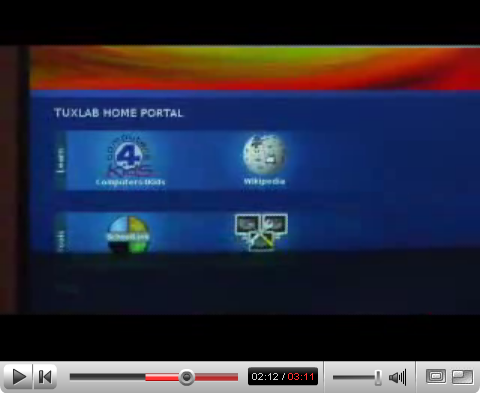
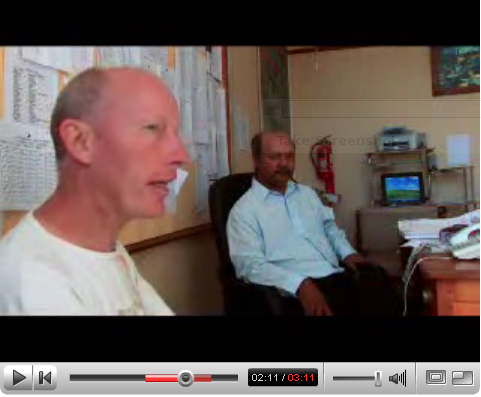
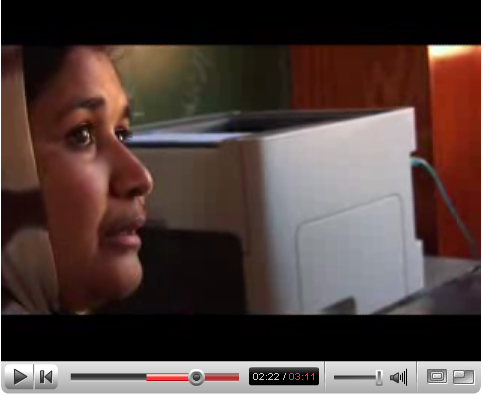
The video finishes up with clips of people around the world talking about wikipedia, how it has benefited them, and how they contribute, including people typing articles in on cellphones ..
There is a clip of me, at Lavender Hill Secondary school (at a township close to Muizenberg more renowned for its gangs) talking about my placement of a complete copy of wikipedia down at schools that have no daytime internet access, and also the Lab administrator Shanaaz talking about her wish for more content on the Afrikaans wikipedia.
Schoolwan
As an update on the Wizzy project, a fair bit has been happening.

In partnership with Inkululeko Technologies and Amobia Wireless Access, Wizzy is providing its email solution for a number of schools provisioned by Inkululeko and Amobia. Inkululeko are the spinoff from the Shuttleworth Foundation and their efforts to put computer labs down in South African schools, and Amobia are a local Wireless ISP.
The labs that Inkululeko put down are Thin Client labs, using old, recycled computers in front ofthe learners coupled to a large Linux server that runs the applications and fileserver. Wizzy provides a local mailserver installation, a squirrelmail IMAP client useable from a browser, and UUCP connectivity to the main mail server hosted by Amobia. Authentication is provided by LDAP.
One Laptop per Child
The One Laptop per Child project has got a lot of attention, has prototype hardware, and a lot of open source software. What are its prospects in Africa ?
Antoine managed to get one of these to show off as he is writing code behind the ‘view source’ button, and Morgan and Jonathan of our local Linux uses group have all blogged about it.
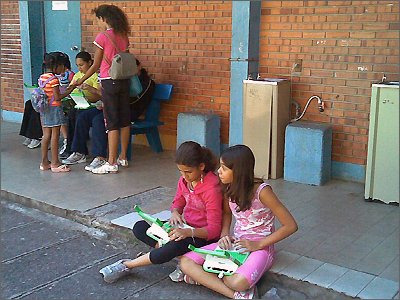
There are a lot of things to be said about the OLPC project. The first thing to note is that it is not a new initiative - there have been others, under different names, for a long time. Seymour Papert invented Logo, a programming language targeted at children, and Alan Kay was the conceiver of the Dynabook concept which defined the basics of the laptop computer.
Hello from the millenium minds conference
Folks,
I just went to a conference last week discussing Internet in education in South Africa. I went with George Solomon, someone I met though a foundation in the States that sponsors computers in schools here, through the African American Foreign Relations Council.
They installed 30 486-class into Esangweni Secondary school, in Kyalitsha, one of Cape Towns black townships. They all have 16M RAM, and Windows95. There is also a Server computer, currently unused.
Mozambique
Folks,
I went down to Maputo, the capital of Mozambique, for a few days last week. Rather than deal with the hassle of vehicle papers, I left my bike in South Africa (White River, at the house of a motorcycling friend I met in South Africa a couple of months ago) and headed to Mozambique by the minibus taxis that all the black people use.
Mozambique has been in civil was for much of the last 20 years, so the infrastructure is creaky to non-existent. Water is only available in Maputo for half the day, as they lose too much underground otherwise. Power cuts are frequent.
Swaziland
Folks,
A few more impressions after being here a few days -
Even the rural areas seem relatively affluent compared to rural South Africa. Much, I am sure, because of the low population here.
Large British influence here - Barclays bank, many ex-pats, Universal English, little or no Africaanse.
The government is a mess. The King, who did not like the last constitution, and so summarily dissolved the government and put together a ’traditional’ system, that basically means he (and his mother) have complete power. There is a very slow process right now to design a new constitution - don’t hold your breath. Political parties are banned.
Schools, zululand
Folks,
Yesterday I went to a ’turning of the sod’ for a new High school here in Eshowe, which will be paid for by a number of Spanish NGOs (non-government organisation) and managed by the Eshowe Christian Action group. The ceremony was at a nearby primary school, and included some good zulu dancing by the kids.
Today there was an opening of the first skills centre / technical college in zululand, which cost R2.5M for the first stage, funded by AngloAmerican, a huge mining conglomerate, and a number of smaller donors, like the British Consulate in Durban, and Rotary International from Eshowe and Germany.
Zululand - South Africa
Folks,
Zululand is the political stronghold of the Inkatha Freedom Party, and Buthelezi, its leader. He is related to the King of Zululand, who owns/administers most of the land, and who is a direct descendent of Shaka Zulu, the (quite recent) founder of the Zulu nation.
Zululand is a place of rolling hills, with traditional Zulu Kraals dotted all over it. Ulundi is the capital, but is a small place. I am staying in Eshowe, the oldest city here, but Eshowe is smaller than Richards bay, a large seaport that ships more tonnage than Durban, primarily coal, timber (wattle and Gum) and sugar (which is grown everywhere). There is also a large, new, aluminium smelting plant there.